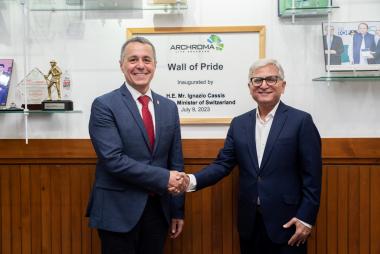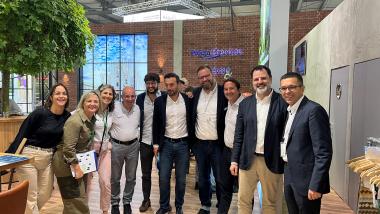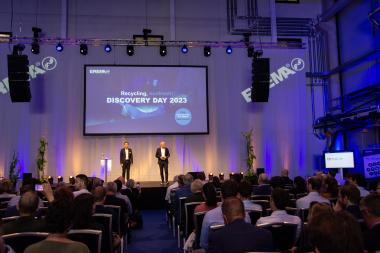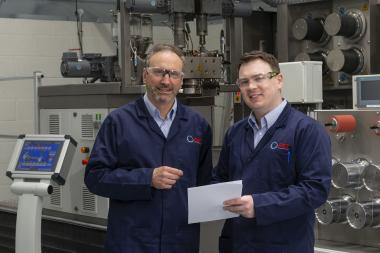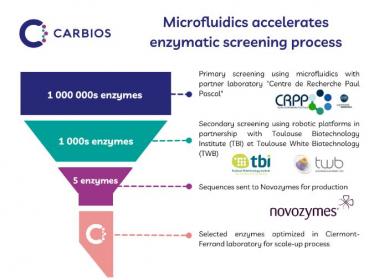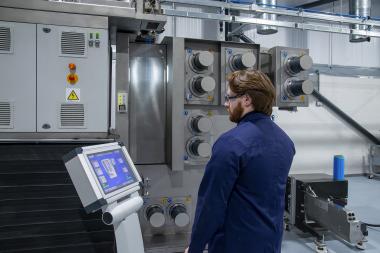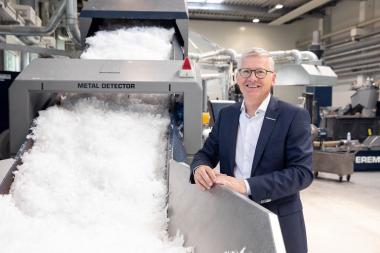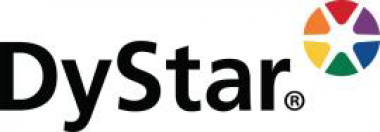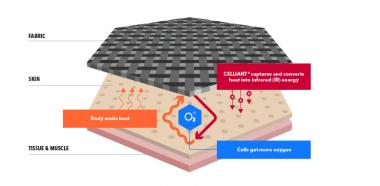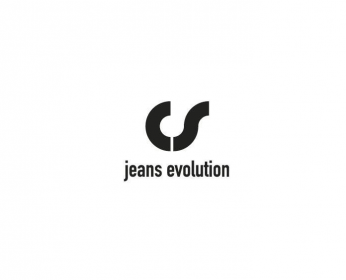Foreign minister of Switzerland visits Archroma in Pakistan
Archroma, a global leader in specialty chemicals towards sustainable solutions, was highlighted for its advanced sustainable practices and innovation in Pakistan by the Swiss Embassy. Foreign Minister of Switzerland, Mr. Ignazio Cassis who was on an official state visit to Pakistan visited Archroma Center of Excellence at Karachi on 9 July 2023 along with high-level officials and three Members of Swiss Parliament.
Mr. Ignazio Cassis was greeted by Archroma employees at the Archroma Center of Excellence. He inaugurated the company’s "Wall of Pride", an impressive collection of recognitions, accolades and honors earned by Archroma in Pakistan since the company’s inception in October 2013.
Mr. Cassis visited the Research & Technology (R&T), Application, Analytical Laboratories & Training Academy spread on three floors at the Archroma Center of Excellence and saw the developmental work in progress. He was shown printing of multi-colored fabrics along with research based developmental analysis in the laboratories.
The globally acclaimed ‘Zero Liquid Discharge Sustainable Effluent Treatment Plant’ and the aniline-free* indigo produced at Jamshoro were the two of the main highlights showcased as best-in-class sustainable practices in the industry. Presentations and discussions were held on continued enhancement of these landmarks with the local industry.


